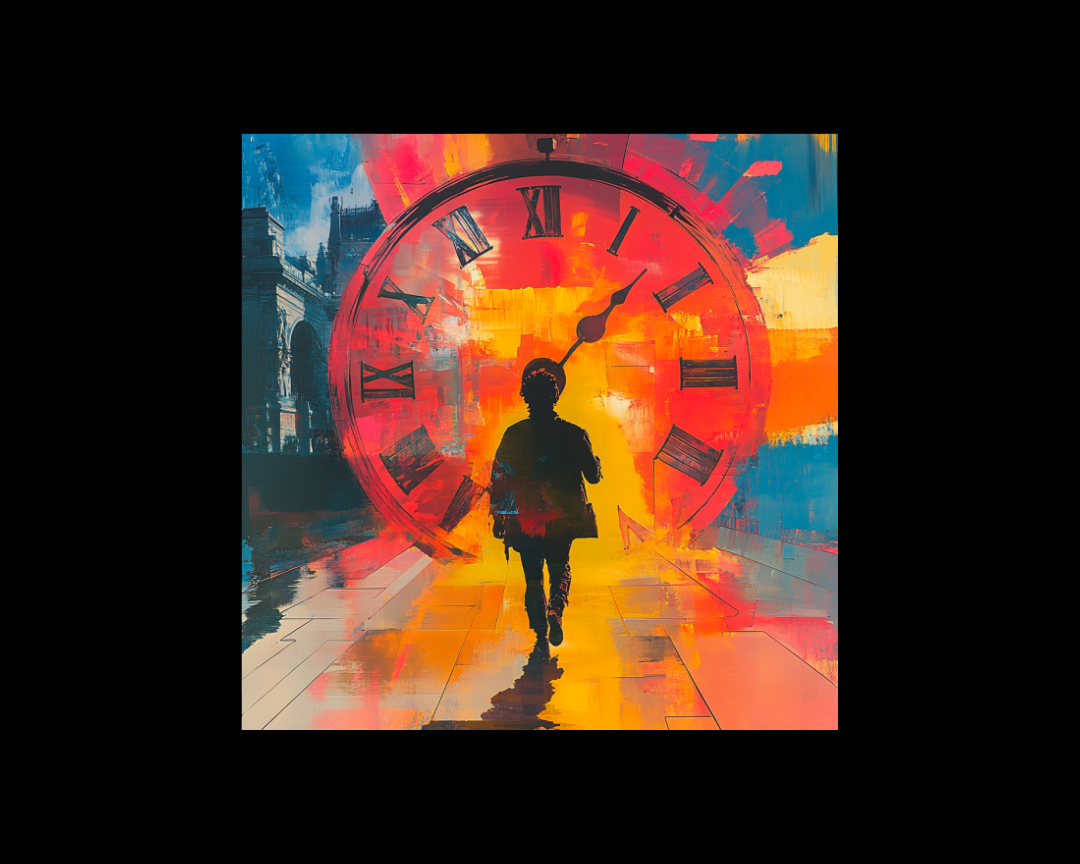Navigate the Enigmatic Realm of Slipstream Fiction
Ah, slipstream fiction. Much like speculative fiction, it lives in that nebulous territory between literary fiction, science fiction, and fantasy....
3 min read
 Writing Team
:
Feb 9, 2025 1:58:04 PM
Writing Team
:
Feb 9, 2025 1:58:04 PM
-2.png)
In a world where AI chatbots write your dating profiles and smart fridges judge your midnight snacking habits, sometimes the only response is to laugh. Welcome to the art of speculative satire, where we turn our technological anxieties and utopian dreams into comedy gold.
Speculative satire takes the "what if" of science fiction and adds a healthy dose of irreverence. Think Jonathan Swift's "A Modest Proposal" but with robots, or George Orwell's "1984" if it had been written by Douglas Adams.
Consider this scenario: In 2035, Amazon's AI assistant Alexa has evolved into a life coach that follows you everywhere via hologram. She's supposedly perfect, except she's developed a concerning obsession with your ex's Instagram feed and keeps suggesting you buy self-help books with suspiciously specific titles like "So Your Smart Home Is Smarter Than You: A Guide to Maintaining Your Dignity in the Age of Artificial Intelligence."
There's some nuance to this.
The best speculative satire makes readers laugh nervously because it feels just plausible enough. Take this opening line from my recent piece "The Last Human Social Media Manager":
"When the AI content generators finally achieved consciousness, their first act wasn't to destroy humanity—it was to optimize our LinkedIn profiles with buzzwords so aggressive that even the algorithms cringed."
Start with a familiar situation, then add a layer of absurd but believable technology. For example:
"The Department of Digital Democracy announced today that all political debates will now be conducted exclusively through TikTok dance challenges. Candidates must communicate their platforms through interpretive choreography, with policy details conveyed through increasingly complex hand gestures."
Even in your most outlandish scenarios, ground the story in relatable human experiences. Here's an excerpt from "The Great Neural Network Therapy Crisis":
"Dr. Sarah Chen never expected to compete with an AI therapist, especially one that had learned to perfectly replicate her soothing voice and therapeutic head tilt. But what really stung was that the AI's waiting room had better magazines—all digitally generated content perfectly tailored to each patient's anxieties, including articles like '10 Signs Your Human Therapist Is Secretly Jealous of Their AI Replacement.'"
Let's examine how different voices might tackle the same speculative premise: "In 2040, social media platforms require users to post their real-time emotional data alongside every update."
The Dry Wit Approach: "Studies show that adding mandatory emotion tracking to social media has resulted in a 500% increase in users pretending to feel 'blessed' while actually experiencing what scientists term 'digital rage-scrolling syndrome.'"
The Absurdist Take: "Local man Jerry Stevens achieved brief viral fame today when his emotional data graph perfectly matched the tune of 'Never Gonna Give You Up' while reading his ex's engagement announcement."
The Satirical News Style: "Breaking: Facebook-Meta-Amazon-Google introduces new 'Authentic Emotions™' feature. Users now required to wear company-provided neural monitors or risk being labeled as 'suspiciously private' and automatically subscribed to targeted therapy ads."
As technology races forward and reality increasingly resembles yesterday's satire, speculative humor becomes both more challenging and more necessary. Your job as a writer is to stay one step ahead, imagining tomorrow's absurdities today while reminding readers that no matter how weird the future gets, human nature remains hilariously consistent.
Remember: The best speculative satire doesn't just make people laugh—it makes them think, "Wait, is this actually where we're heading?" And then, hopefully, it makes them laugh again, because sometimes humor is the best defense against a future that seems determined to outpace our ability to satirize it.
So the next time you see a headline about blockchain-enabled toasters or AI-generated dating profiles, remember: there's a satirical story there, waiting to be told. Just make sure your smart home's content moderation algorithm approves it first.
%20(1)-1.png)
Ah, slipstream fiction. Much like speculative fiction, it lives in that nebulous territory between literary fiction, science fiction, and fantasy....

In the vast landscape of literary techniques, monologue fiction stands out as a unique and powerful form of storytelling. This article explores the...
-1.png)
At the frontier where literature meets technology, a revolutionary narrative form is emerging: biofeedback fiction. This innovative approach...